
The leadership development programme is designed to equip you with the competence and courage to become a leader who can positively impact the African continent. We develop competence through 21st century leadership skills, capabilities, and knowledge sets. We build courage by developing your resilience, inviting you on a journey of self-acceptance, and increasing your ability to access your inner resources as you seek to make a transformative impact in the world. The first year programme focuses on acquiring learning, and the second year programme for two-year Masters students focuses on putting that learning into practice.
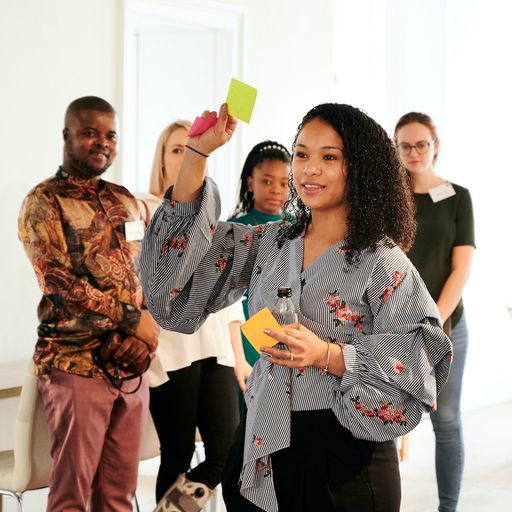
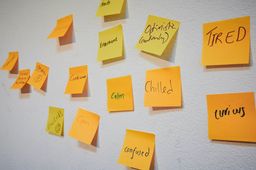
Our workshops critically engage with our four principles of reconciliation, education, entrepreneurship, and leadership. Alongside the 30-50 Scholars in your class, you will explore these principles at the level of the individual, the group and in society. A workshop may include sessions where you share your personal journey, engage with a high-profile speaker or panel, learn a new concept, or reflect on your learnings in a small group. Workshops offer a chance to build community with your cohort, develop your individual capacities, and connect with speakers and members of the broader Mandela Rhodes community. First year workshops take place in January, July and September.
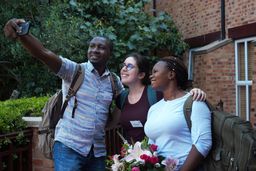
Outside of the workshop space, campus life and your academic programme continue. You will be placed in a pod group with Scholars who are in your region, which will meet three times during the year. Pods are designed to provide you with local support and community, and a space for you to continue to talk about and reflect on your learning. The Foundation convenes the first gathering, and the second and third are self-organised.
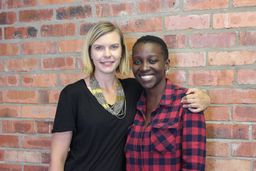
You can access further support and enrich your journey as a scholar through our voluntary mentoring programme. If you choose to participate, you will be paired with an alumni of the programme who understands the journey you are on. A mentor can offer you a space for one-on-one reflection, provide advice and support your personal, professional or academic development. Our mentoring programme builds intergenerational networks among the ‘family’ of Mandela Rhodes Scholars.
Read this Q&A with 2019 Scholar Audrey Mabiza and watch the video below.
The second year programme aims to put your learnings from the previous year into action. It focuses on providing practical tools to move from theory to practice, equipping you to work collaboratively across disciplines, and providing a generative platform from which ideas and projects can be launched.
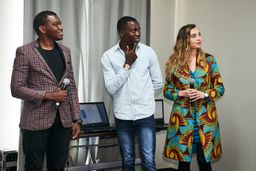
The backbone of the programme is a design thinking approach, which is explored in two modules in March and August. Scholars are immersed in design thinking principles, and exposed to leading speakers and panelists through a series of masterclasses.
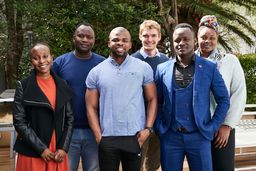
Your class will be divided into multidisciplinary groups, which will work together on a project over the course of the year. The first small-group gathering is convened by the MRF and the rest are self-organised.The programme culminates with a pitch to a panel and the rest of your class.
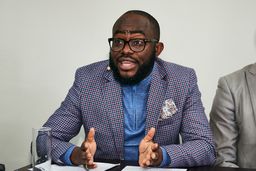
Each group is offered a sector-specific advisor from our alumni community. This advisor will guide and give input on your group project as your idea progresses.
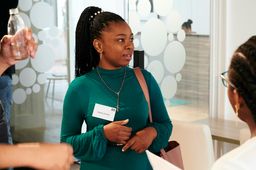
Setting up your life as a postgraduate student in South Africa is a significant process, especially if you are coming from outside the country. It is important to us to provide a caring and supportive environment for scholar wellbeing, and you can rest assured that the MRF team is here to support you on your journey.
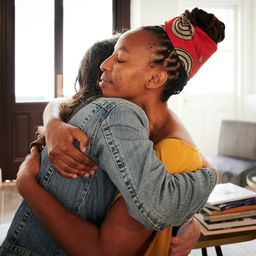
Once you become a scholar, you will join our unique Mandela Rhodes family. Growing as a leader is a journey, and our aim is that you will tap into your relationships with other scholars through your pod groups and mentoring relationships as a source of community and fellowship along the way.
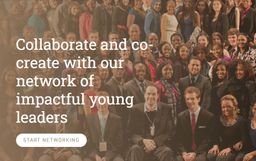
Our community is spread out all over the world, and to facilitate connection we have an exclusive online platform which you will gain access to. In residence you can contact and connect with your cohort and your mentor, and once you graduate you can get in touch with people in the alumni community.
Allowances are paid twice a year. You will be required to provide proof of registration or acceptance at the start of the year, and a progress report from your university at the start of the second semester. Your tuition and registration fees are paid directly to your tertiary institution, while all other allowances are paid to you. Any amount due to or owed by you prior to becoming a Mandela Rhodes Scholar is your sole responsibility, and the MRF will not become involved in any way. Although we provide you with a stipend for accommodation, you are responsible for using this stipend to organise and paying for your own living arrangements. You can choose to stay in a university residence or in private accommodation.
If you are an international student, the Foundation will fly you to South Africa and back at the beginning and end of your degree. We will organise and pay for transport to workshops for all scholars not based in the Western Cape. You are responsible for your day-to-day transport arrangements and costs. In the majority of South African cities, the most central accommodation is the most expensive. However, living further away may not necessarily be economical as transport costs can be high. We recommend that you calculate distances and get estimates of travel costs before you decide on your accommodation.
South Africa has 11 official languages, but English is the language of tuition at South African universities. All of your written work will be submitted in English. You must be sufficiently proficient in English to read and write at an academic level, and converse with your classmates and supervisor on your subject of study. Some universities require that you submit test results to demonstrate your level of proficiency. We recommend that you investigate these requirements as early as possible, so that you can plan to take the test (which may have a cost attached to it) or take measures to improve your proficiency.
As is the case globally, large cities can be unsafe. We advise you to be conscious of your personal security. You may be aware of reports on xenophobic attitudes in South Africa. It is our hope that this should not be the case on university campuses, and within MRF spaces we enforce a zero-tolerance policy for all forms of discrimination and harassment. Unfortunately we cannot control what happens outside our sphere of influence, and you may at times feel unsafe in your day-to-day life. You can explore this overview of health and safety considerations for international students - although it is aimed at students studying in Cape Town, there are many points that are valid in any South African city.
Additionally, we recommend talking to previous scholars or getting in touch with people from your country who are living in South Africa, so that you can have an informed picture of what life in South Africa will be like for you.